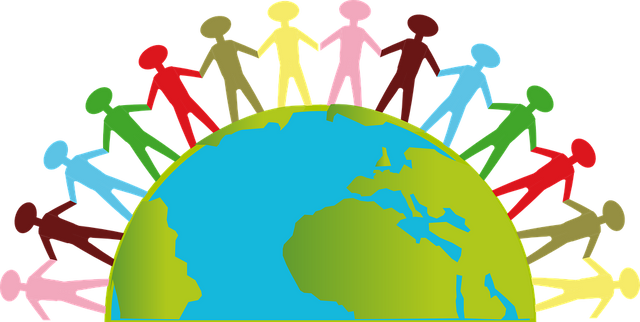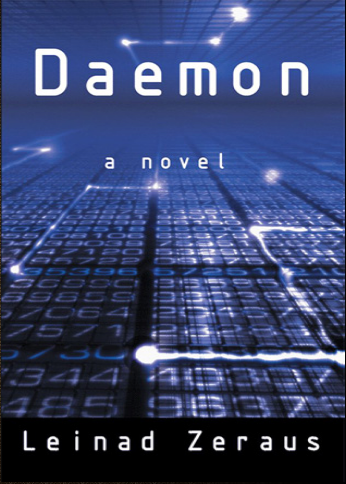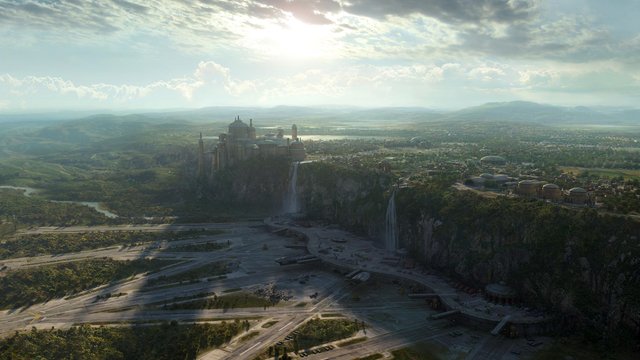My quest to instantiate a global decentralized meritocracy
My Question
My journey begins back in 2009 during a trip to Kakadu, Australia with my family. I had recently finished high school and decided during a long drive through the desert that I would start putting serious thought into an idea that had been playing around in the back of my mind for a few years and see where it took me. I wanted to come up with a more effective way of aggregating distributed subjective information than the upvote/downvote or 5-star ratings systems that populate the web. Little did I know the scope of the odyssey this little intellectual foray would embark me upon.
I read a lot over the next few years. I especially devoured audiobooks and podcasts in economics, psychology, sociology and technology. As my mind expanded with new understanding of the world I live in, so did the scope of my ambition. The problem I had begun to ponder out of annoyance with the dissatisfying output I found in contemporary reputation systems like Reddit and Facebook evolved into a vision of a world scale tribe with incentives for mutual wealth-producing cooperation at least as robust as those which made a group of physically feeble ancient humans into the most dominant force in the ancestral environment.
Now you may be thinking that our civilization has done a pretty good job of scaling human cooperation to billions of people. Or maybe you're a more cynical type and found yourself dwelling on all the ways in which people get screwed in our society and all the ways that selfish people find to grow rich and powerful at the expense of others. The truth is, cooperation dynamics are highly heterogeneous across communities and whether you consider the community you're most cognizant of to be cooperative depends entirely on what you're comparing it to. The important question is, can we do better?
This question is not academic. Our civilization faces some seriously formidable threats and some of the most dire, including global warming, unfriendly AI and biological pandemics are coordination problems. No single organization or country can unilaterally protect humanity from some imprudent biotech research lab in an obscure region of the world producing and accidentally releasing a civilization destroying super bug. Nor can any single actor force every AI research project in the world to slow down and be prudent when there's so much wealth and power to be gained by winning the arms race to strong AI - never mind that the alien superintelligence, thus summoned, may destroy its creators and reformulate the atoms of our planet in an undesirable fashion in the process of carrying out its programmed goals to the letter!
And this is all without going into the fact that the amount of suffering going on in the world at the moment is JUST NOT OK!
The centuries old systems of government that currently run our civilization cannot overcome these challenges. But maybe, just maybe, a single, cohesive planetary scale tribe could.
My Quest
So did I ponder as I embarked upon a quest to create a coordination system that might make this vision a reality.
I realized early on that one important criteria for a reputation system to be resilient to gaming is that influence must be allocated by a currency that is expensive to obtain. You can believe I spent long hours trying to come up with sophisticated anti-gaming mechanics with which to augment a conventional one-vote-per-user system. These mechanics inevitably became more and more complex as I came up with attack vectors against each previous iteration. I finally came to understand that this arms race of ever increasing sophistication in exploitation strategies and anti-gaming heuristics would never end so long as there was any kind of free influence to be had. That means there must be no influence allowed to new user accounts and no costless voting. But the question then arises, if voting is costly, why would anyone do it? Which is what lead me to come up with the idea of making voting like investment. At which point I also realized that investment dynamics could motivate good content discovery and offset the halo effect so that the items that gain the highest rankings would, to a greater extent, be the actual best content rather than the lucky subset of sufficiently good content that happened to catch a lucky break and start trending.
It was not long after this that I read Daniel Suarez's Daemon saga and became inspired by the idea of a reputation system forming the underpinnings for a decentralized system of government. It also became clear to me that any such reputation system would have to be decentralized because any centralized management of the reputation system would be a central point of failure and would cap the trustworthiness of the reputation information to the trustworthiness of the platform controller.
And so I set about designing a decentralized protocol for maintaining consensus about a shared, global database of reputation information. The approach I came up with was based on a paradigm that I would later discover the cryptocurrency community had labeled Proof-of-Stake.
Steem it!
And so... you may have correctly predicted that it was with excitement and no small amount of envy that I discovered Steem last week.
After getting over the initial shock at discovering so many of my ideas, or close variants of them, implemented in a functioning system, I realized that Steem represents another great step towards the vision I've been imagining for so long. The crypto tech community is already learning so much from observing the practical implications, both good and bad, of Steem's innovations, but most importantly, this idea of rewarding content creators from an indirectly generated stream of capital is now real for people. More and more people are going to start seeing the potential of this paradigm to replace artificial constraints on information access as a means to incentivize the creation of non-rivalrous goods.
It won't be long now before we start seeing professional artists, open source software developers, community service providers, scientific researchers - all supported by post-hoc rewards in proportion to the value they've added to society. This model has the potential - not in the short term, perhaps, but eventually - to replace copyrights and patents entirely and allow an entire generation to work independently, providing value to people scattered across the world in the niches they are most interested in. I believe such a transition would have a pretty extreme impact on the amount of creativity, innovation and general problem solving power we'd see in the world. This would come in no small part from the elimination of copyright and patent laws, which are a highly costly means of motivating the production of public goods (see Remix and Against Intellectual Monopoly), but also from the improvements to global information propagation dynamics that would accompany solving the reputation system problem. So many scientific and technological breakthroughs are made at the interface between fields of knowledge. How much more of that kind of cross-pollination will be stimulated when the discourse of specialists, dappling dilettantes and visiting experts from various related fields all occur on a single meritocratically filtered information platform?
Scott Page has done some fascinating research on the math underpinning the problem solving power of diversity. One of the most difficult challenges to exploiting this power is getting people with diverse expertise and perspectives to collaborate effectively. A big part of this difficulty comes from the human bias to ignore information that doesn't conform to one's preferred paradigm. If a reputation platform seeded with diversity and good epistemology as core values was able to come to global pre-eminence as a platform for information sharing, however, then the best ideas from multiple perspectives would be forced into collision with each other and the problem-solving power of an intellectual environment like that cannot be overstated.
And so we have all the most important pieces required to govern a humanitarian civilization:
- Decentralization of power so that a dominant few cannot exploit everyone else for their own interests
- A low-friction means to illicit people's detailed preferences and have them influence the allocation of resources
- An effective system for collective problem solving that balances power in any given problem domain between a powerful few with the most expertise in that domain, and a long tail of interested citizens who are empowered to coordinate to oppose any abuse of power by the domain leaders.
Now I realize that I have failed to provide a satisfying explanation for how such a decentralized meritocracy would actually work. Perhaps I will make this the substance of a future post :-)







Great to have you in the community!
Here are some tips if you're not aware of already:
#NSFWor for#testonlyCongratulations @zuthan! You received a personal award!
You can view your badges on your Steem Board and compare to others on the Steem Ranking
Vote for @Steemitboard as a witness to get one more award and increased upvotes!
Welcome to Steemit @zuthan!
Here is some interesting info that will help you create AMAZING content. (Will change as Steemit grows)
How to Create Successful Steemit Content:
Reading & understanding the above posts will give the reader a SIGNIFICANT advantage on steemit.
Everyone is rooting for you!
Good Luck!,
steemit.tips
Only the wisest and the stupidest of men never change.
Ciao! Ciao!
Welcome to Steemit!
Greetings!
Steem ahead!